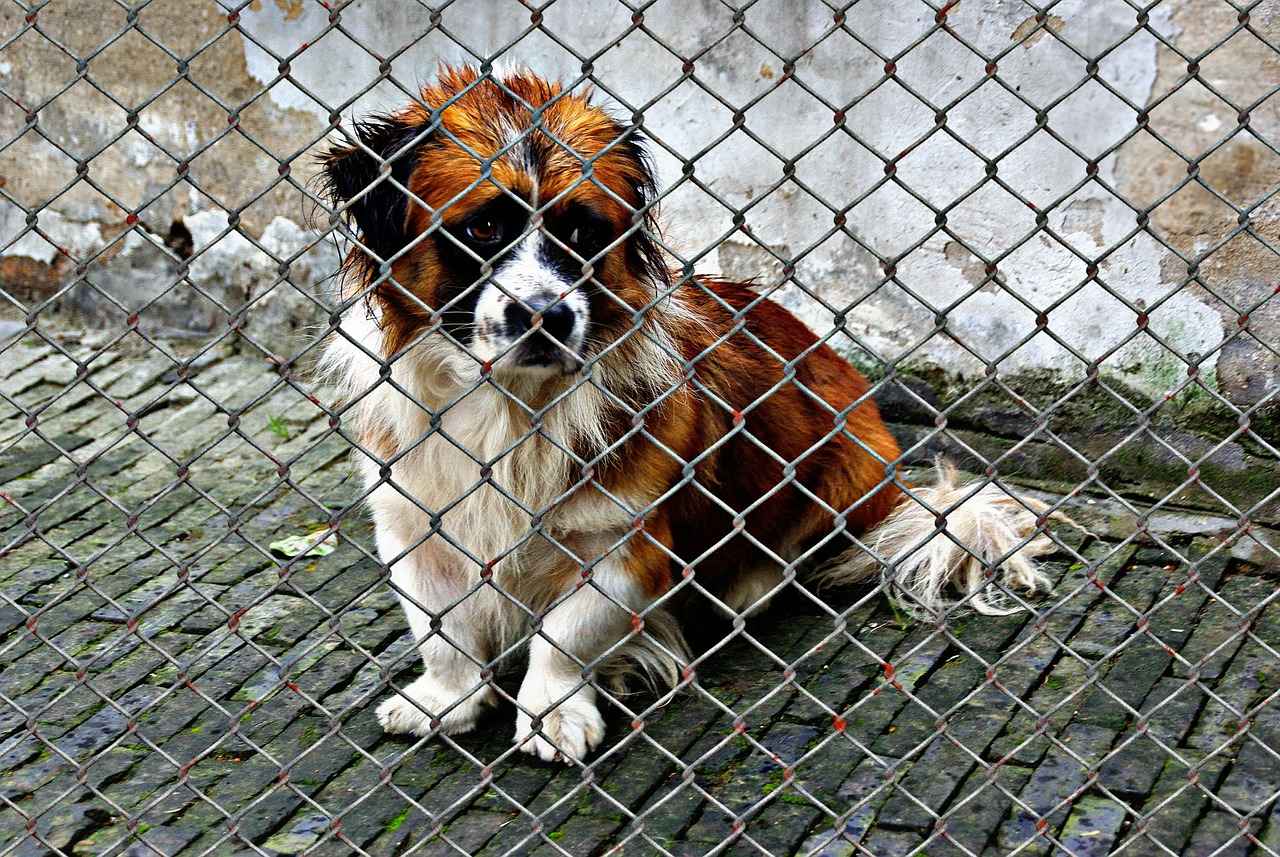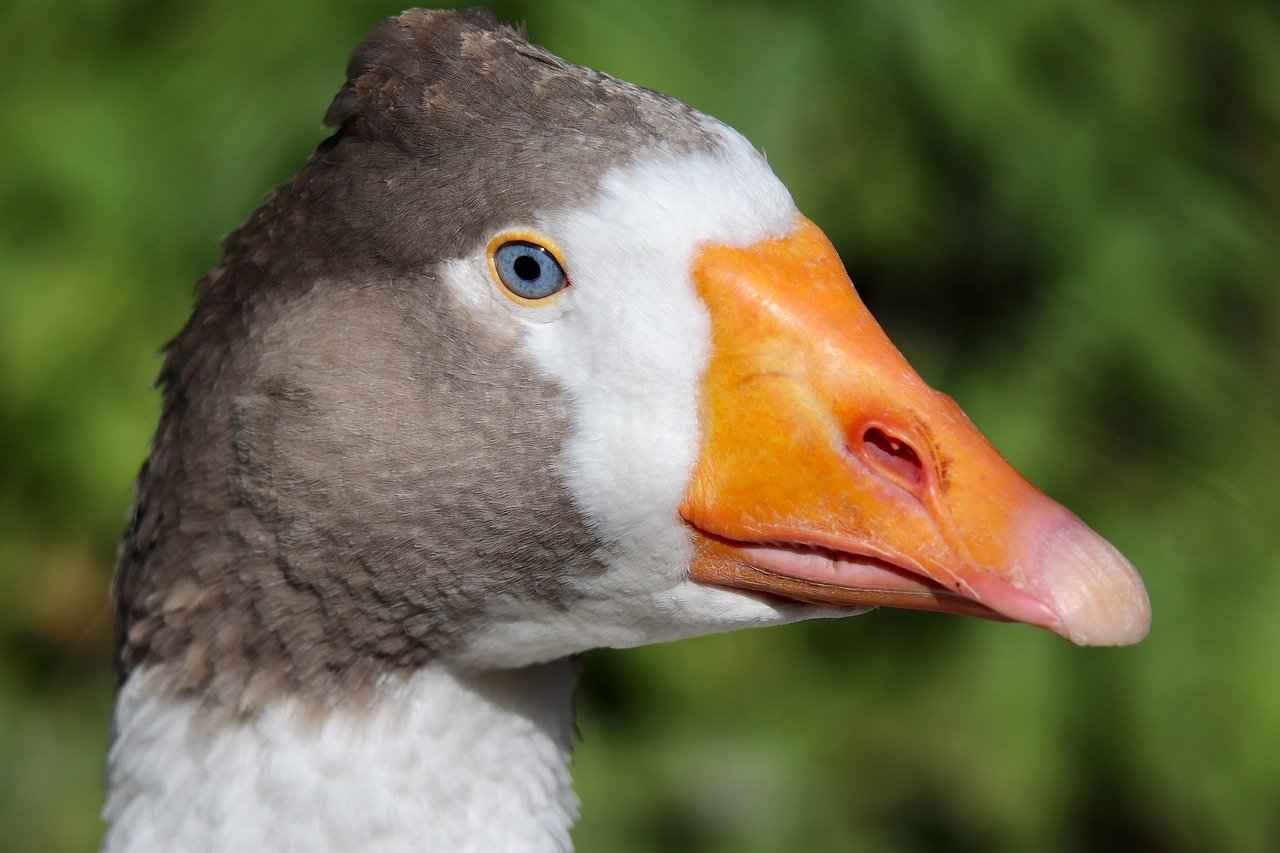This article delves into Zooville, a controversial online platform that has sparked heated debates across the globe. Its existence raises profound questions regarding animal rights, ethical considerations, and the legal frameworks that govern such communities. Understanding Zooville is essential not only for those directly involved but also for society as a whole, as it reflects broader issues concerning human-animal relationships.
What Is Zooville?
Zooville is an online community that caters to individuals with specific interests in human-animal relationships, often referred to as zoophilia. This platform serves as a forum where users can share content, engage in discussions, and connect with like-minded individuals. The community’s purpose is to provide a space for those with these interests to express themselves, albeit in a highly controversial manner. Understanding the audience of Zooville is crucial; many users believe they are advocating for a misunderstood aspect of human sexuality, while critics argue that such platforms promote harmful ideologies.
How Does Zooville Operate?
The operational structure of Zooville resembles typical online forums, where users can create profiles, post content, and interact through comments and private messages. The platform has guidelines intended to maintain a semblance of order; however, these rules are often criticized for being insufficient to prevent the sharing of illegal or unethical content. Moderation efforts vary, leading to ongoing debates about the platform’s responsibility in regulating user behavior. As discussions unfold, the community dynamics reveal a complex interplay of support and dissent among users.
What Are the Ethical Concerns Surrounding Zooville?
The ethical implications of Zooville are significant and deeply troubling. Critics argue that the platform raises critical questions about animal welfare and the concept of consent. Animals cannot provide consent in the way humans can, leading to accusations of exploitation. The existence of Zooville challenges societal norms and moral frameworks, prompting activists and ethicists to call for stricter regulations and a reevaluation of how human-animal interactions are perceived. Many animal rights advocates view the platform as a direct threat to the welfare of animals, advocating for greater protections and awareness.
Why Is Zooville Facing Legal Challenges?
Legal scrutiny surrounding Zooville has intensified, with various jurisdictions questioning its legality. Laws regarding animal rights and sexual conduct vary significantly from country to country, resulting in a patchwork of legal responses. In some regions, the platform operates in a legal gray area, while in others, it faces outright bans. As governments grapple with the implications of such communities, the potential ramifications for Zooville and its users remain uncertain. Legal challenges not only threaten the platform’s existence but also highlight the urgent need for comprehensive legislation addressing animal rights in the digital age.
How Does Zooville Affect Animal Rights Activism?
The presence of Zooville has led to intensified discussions among animal rights activists. The platform is often cited as a reason for the necessity of stronger animal protection laws. Activists argue that allowing such communities to exist undermines their efforts to promote ethical treatment of animals. This situation has prompted a call to action, with many advocates working tirelessly to raise awareness and mobilize support against platforms that they believe exploit animals. The resulting dialogue has the potential to reshape the landscape of animal rights activism, pushing for more robust legal frameworks and societal change.
What Are the Perspectives of Zooville Users?
Understanding the viewpoints of Zooville users provides insight into the community’s dynamics. Many participants argue that they are misunderstood and that their interests should not be criminalized. They often express a sense of belonging within the community, where they feel safe to discuss their experiences and desires. However, this perspective is met with significant backlash from the broader public, who view the platform as promoting harmful behaviors. The ongoing debate reveals a complex web of motivations and beliefs, highlighting the need for open dialogue and education on the subject.
How Have Governments Responded to Zooville?
Governments around the world have varied in their responses to Zooville, reflecting differing cultural attitudes toward animal rights and sexual conduct. Some countries have enacted strict laws against any form of zoophilia, while others have taken a more lenient approach, viewing it as a matter of free expression. This inconsistency raises questions about the effectiveness of current legal frameworks in addressing the challenges posed by online communities like Zooville. As more jurisdictions grapple with the implications, the conversation continues to evolve.
What Role Does Social Media Play in the Zooville Debate?
Social media has emerged as a powerful tool in amplifying discussions about Zooville. Platforms like Twitter and Facebook have become battlegrounds for activists and supporters, shaping public opinion and mobilizing campaigns against or in favor of the platform. The rapid spread of information can either reinforce negative perceptions or foster understanding, depending on the narrative being pushed. This dynamic highlights the importance of media literacy and responsible communication in discussions surrounding controversial topics like Zooville.
What Are the Psychological Impacts of Zooville?
The psychological effects of engaging with Zooville can be profound. Users may experience a range of emotions, from acceptance within the community to guilt or shame when confronted with societal backlash. The platform’s nature may also influence users’ mental health and social interactions, complicating their ability to navigate relationships outside the community. Understanding these psychological impacts is crucial for developing appropriate support systems for individuals who may be struggling with their interests.
How Does Zooville Compare to Other Online Communities?
Comparing Zooville to other online communities provides context for its unique position within the digital landscape. While many platforms foster healthy discussions around niche interests, Zooville occupies a controversial space that challenges societal norms. This comparison highlights the need for clear guidelines and ethical considerations in the management of online communities, particularly those that intersect with sensitive subjects like animal rights.
What Are the Risks of Engaging with Zooville?
Engaging with Zooville comes with various risks, including potential legal repercussions and social ostracization. Users may find themselves facing criminal charges in jurisdictions where such interests are illegal, while also dealing with the stigma associated with their participation in the community. Understanding these risks is essential for individuals considering involvement with Zooville, as the consequences can extend beyond personal ramifications to impact their relationships and social standing.
How Can Society Address the Issues Raised by Zooville?
Addressing the concerns surrounding Zooville requires a multifaceted approach that includes legal reform, public education, and open dialogue. By fostering discussions about animal rights and ethical considerations, society can work towards creating a more informed public that understands the complexities of human-animal relationships. Additionally, implementing stronger regulations can help protect vulnerable animals while respecting individual freedoms.
What Are the Future Prospects for Zooville?
The future of Zooville remains uncertain as it navigates the complexities of legal, social, and ethical challenges. As awareness of animal rights continues to grow, the platform may face increased pressure to change or shut down entirely. However, the ongoing discussions surrounding Zooville also highlight the need for continued engagement and understanding of the issues at hand.
How Do Experts View Zooville?
Experts from various fields offer insights into the implications of Zooville, emphasizing the need for a balanced approach that considers both legal and ethical perspectives. Legal scholars, ethicists, and mental health professionals contribute to the discourse, urging society to reflect on the broader implications of such platforms. Their insights can help guide future discussions and policies related to human-animal relationships.
What Can Be Learned from the Zooville Controversy?
The discussions surrounding Zooville provide valuable lessons for society, particularly regarding the intersection of technology, ethics, and law. As we navigate these complex issues, it is crucial to engage in open dialogue and consider the implications of our actions on both animals and individuals. Understanding the multifaceted nature of Zooville will be essential in shaping future discussions and actions.
How Can Individuals Advocate for Animal Rights in Light of Zooville?
Advocacy for animal rights is crucial in the context of Zooville. Individuals can take actionable steps to support animal welfare, such as educating themselves and others about the issues at hand, supporting organizations that promote ethical treatment of animals, and engaging in discussions that raise awareness about the potential harms of platforms like Zooville. By fostering a culture of compassion and understanding, society can work towards creating a safer environment for all animals.
In conclusion, Zooville stands at the intersection of technology, ethics, and law, prompting critical discussions about human-animal relationships. As society navigates these complex issues, understanding the multifaceted nature of Zooville will be essential in shaping future dialogues and actions.

What Is Zooville?
Zooville is an intriguing and controversial online community that caters to individuals with unique interests in human-animal relationships. This platform provides a space for users to explore their passions, share experiences, and engage in discussions that many may find unconventional or taboo. Understanding Zooville’s purpose and its audience is vital, as it sheds light on the ongoing debates surrounding the ethics, legality, and social implications of such communities.
The existence of Zooville raises important questions about animal welfare and the boundaries of human interaction with animals. As a niche community, it attracts individuals who often feel marginalized or misunderstood by mainstream society. This leads to a complex dynamic where the platform serves as both a refuge and a source of controversy.
Within Zooville, users can participate in various forums, share multimedia content, and connect with like-minded individuals. The platform’s structure encourages open dialogue, allowing members to express their thoughts and feelings about their interests. This can lead to a sense of belonging for those who might otherwise feel isolated. However, it also raises ethical concerns regarding the nature of the discussions and the potential for promoting harmful behaviors.
Critics argue that platforms like Zooville may normalize inappropriate or harmful interactions with animals, which can have far-reaching consequences for animal rights and welfare. On the other hand, some users defend their participation as a form of self-expression and community building. They argue that their interests do not necessarily translate to harmful actions and that the platform allows for safe discussions that might otherwise be stifled.
- Community Dynamics: The community is characterized by a mix of individuals, including those who are curious, those who identify with the interests, and those who are advocates for change within the platform.
- Content Sharing: Users share stories, artwork, and discussions that reflect their interests, creating a rich tapestry of content that can be both enlightening and troubling.
- Ethical Considerations: The platform’s existence prompts ongoing debates about the morality of such interests and their implications for animal rights.
In conclusion, Zooville serves as a focal point for discussions about human-animal relationships, raising critical questions about ethics, legality, and community. As society grapples with these complex issues, understanding the multifaceted nature of Zooville will be essential for fostering informed discussions and addressing the ethical dilemmas it presents.

How Does Zooville Operate?
Understanding the operational framework of Zooville is vital to grasp its role as a controversial online platform. This community functions as a forum where users can share content, engage in discussions, and connect with like-minded individuals. By examining its structure and the rules that govern user interactions, we can better understand the dynamics at play within this unique online space.
At its core, Zooville is designed as a user-driven platform. It allows members to create profiles, post content, and interact with others through comments and private messages. The platform is structured around various categories, enabling users to navigate topics of interest more easily. For instance, categories might include artistic expressions, personal stories, and discussion forums focused on specific themes.
This categorization not only facilitates organized discussions but also helps users find content that resonates with their interests. The ability to filter content by category ensures that users can engage with material that aligns with their personal views and experiences, fostering a sense of community. Additionally, the platform supports multimedia content, allowing users to share images, videos, and written posts, thereby enriching the interaction.
To maintain a certain level of decorum and ensure a safe environment for all users, Zooville has established a set of rules and guidelines. These rules are critical in governing how users interact with one another. For instance, the platform typically prohibits harassment, hate speech, and illegal content. Such regulations aim to create a respectful atmosphere where users can express their thoughts and opinions without fear of backlash.
Moreover, users are often encouraged to report any violations of these rules. This community-driven moderation helps to uphold the platform’s standards and ensures that inappropriate content is swiftly addressed. Regular updates to these guidelines may occur, reflecting the evolving nature of online interactions and societal norms.
Engagement on Zooville occurs through various means, including comments, private messages, and group discussions. Users can comment on posts, offering feedback or sharing their own perspectives, which fosters a vibrant dialogue. The ability to send private messages allows for more personal interactions, enabling users to connect on a deeper level.
Additionally, the platform may host events or discussions that encourage real-time participation, creating opportunities for users to engage with one another beyond asynchronous posts. This dynamic interaction model is crucial in building a community where users feel valued and heard.
In summary, Zooville operates as a structured forum that facilitates user interaction through well-defined categories and rules. By understanding how this platform functions, we can better appreciate the complexities and nuances of the discussions that take place within its virtual walls.

What Are the Ethical Concerns Surrounding Zooville?
The emergence of Zooville as an online community has stirred significant ethical debates, particularly concerning animal welfare and the concept of consent. This platform, which caters to individuals interested in human-animal relationships, raises critical questions about morality and legality. In this section, we will delve into the ethical concerns surrounding Zooville, exploring the implications of its existence on both animals and society at large.
At the core of the ethical dilemmas posed by Zooville is the issue of animal welfare. Animals, unlike humans, cannot provide consent in the way we understand it. This raises a fundamental question: can any interaction between humans and animals that is not mutually consensual ever be justified? Advocates for animal rights argue that animals should be treated with respect and dignity, free from exploitation and harm. The activities and discussions that take place within Zooville often blur the lines between admiration and exploitation, leading to concerns about the potential normalization of harmful behaviors towards animals.
Furthermore, the platform’s existence challenges societal norms regarding the treatment of animals. Many individuals view animals as sentient beings deserving of protection, and platforms like Zooville can undermine these efforts by fostering a community that may inadvertently promote harmful ideologies. The potential for individuals to justify unethical behavior under the guise of “community” or “expression” is a significant concern for animal welfare advocates.
Another critical aspect of the ethical debate surrounding Zooville is the concept of consent. In human relationships, consent is a cornerstone of ethical interaction. However, applying this concept to human-animal relationships is fraught with complications. The inability of animals to provide informed consent raises questions about the morality of any relationship that is initiated by humans. This dilemma is further complicated by cultural beliefs and individual perspectives on the nature of human-animal bonds.
- Exploitation vs. Companionship: The line between companionship and exploitation is thin. While some may argue that their interactions with animals are rooted in affection, others see it as a form of exploitation that disregards the animal’s autonomy.
- Legal Implications: The ethical concerns surrounding Zooville also intersect with legal issues, as many jurisdictions have laws in place to protect animal welfare. The platform’s existence may challenge these laws, leading to potential legal repercussions for users.
- Impact on Society: The normalization of discussions surrounding human-animal relationships in platforms like Zooville can influence societal attitudes towards animals, potentially leading to a desensitization to animal suffering.
In conclusion, the ethical concerns surrounding Zooville are complex and multifaceted, involving issues of animal welfare, consent, and societal norms. As discussions continue, it is essential for society to reflect on the implications of such platforms and advocate for the ethical treatment of all living beings.

Why Is Zooville Facing Legal Challenges?
Zooville, an online platform that has garnered significant attention and controversy, is currently under intense legal scrutiny across various jurisdictions. This scrutiny stems from a complex interplay of ethical, legal, and societal factors that raise profound questions about the platform’s existence and operations. In this section, we will delve into the laws that apply to Zooville, the ethical implications of its content, and the potential ramifications for both the platform and its users.
At the heart of the legal challenges facing Zooville are the differing laws regarding animal welfare and consent in various countries. Many jurisdictions have stringent animal protection laws that aim to prevent any form of exploitation or abuse. For instance, in the United States, laws vary widely from state to state. Some states have explicit laws against bestiality, while others may have more ambiguous regulations. This inconsistency creates a legal gray area for platforms like Zooville, which may host content that some jurisdictions consider illegal.
In addition to animal welfare laws, there are also considerations regarding the freedom of speech and the extent to which online platforms can regulate content. Zooville may argue that it is merely providing a space for individuals to express their interests. However, this defense is complicated by the platform’s association with highly controversial and sensitive topics. Legal experts suggest that the platform could face lawsuits not only from animal rights organizations but also from individuals who feel that their rights or reputations have been harmed by the content shared on Zooville.
Furthermore, the platform’s international reach complicates the legal landscape. Different countries have varying thresholds for what constitutes acceptable content, and as Zooville operates across borders, it may inadvertently violate laws in multiple jurisdictions. This situation raises the question of whether Zooville should implement stricter content moderation policies to comply with the most stringent laws, or if doing so would infringe on the rights of its users.
Another critical factor to consider is the role of public opinion in shaping legal responses to Zooville. As more people become aware of the platform, there is growing pressure on lawmakers to take action. Animal rights activists have mobilized to advocate for stricter regulations on platforms that promote or condone harmful behaviors towards animals. This activism could lead to legislative changes that further complicate Zooville’s operational framework.
In summary, Zooville is facing a multitude of legal challenges due to the complex interplay of animal welfare laws, freedom of speech considerations, and public sentiment. As jurisdictions continue to scrutinize the platform, the potential ramifications could be significant, not only for Zooville but also for its users and the broader discourse surrounding human-animal relationships. Understanding these legal challenges is essential for grasping the ongoing debates about the platform’s future.

How Does Zooville Affect Animal Rights Activism?
The emergence of Zooville, an online platform dedicated to specific interests surrounding human-animal relationships, has ignited a firestorm of debate among animal rights activists and advocates. This section explores the complex interplay between Zooville and the animal rights movement, examining both the challenges and opportunities that arise from its existence.
At the heart of the discussion is the question of animal welfare. Activists argue that platforms like Zooville can potentially normalize harmful behaviors towards animals, undermining decades of progress in advocating for their rights. The concern is that by providing a space for individuals to share and promote their interests, Zooville might inadvertently legitimize practices that many consider unethical. This has prompted a vigorous response from animal rights organizations, which are mobilizing to counteract the platform’s influence.
Moreover, the presence of Zooville has spurred a renewed focus on the definitions of consent and agency in discussions about animal rights. Advocates argue that animals cannot provide consent in the same way humans do, raising ethical dilemmas that challenge the very foundation of human-animal interactions. This has led to a broader dialogue about what constitutes ethical treatment of animals, pushing activists to clarify their positions and strengthen their arguments against exploitation.
In response to the challenges posed by Zooville, many animal rights activists are leveraging social media to amplify their message. Platforms like Twitter and Facebook have become essential tools for raising awareness and mobilizing supporters. Campaigns aimed at educating the public about the potential dangers of Zooville and similar platforms are gaining traction, as activists seek to inform others about the implications for animal welfare.
Furthermore, the controversy surrounding Zooville has prompted some activists to engage in collaborative efforts with legal experts and policymakers. By forming coalitions, they are working to advocate for stricter regulations that could limit the reach and impact of platforms that promote unethical interactions with animals. This collaborative approach not only strengthens their position but also fosters a sense of community among various stakeholders who share a common goal of protecting animal rights.
In addition to activism, the existence of Zooville has sparked critical discussions about the role of technology in shaping human-animal relationships. As society becomes increasingly digital, it is essential for activists to understand how online platforms influence perceptions and behaviors towards animals. This awareness can lead to more effective strategies for advocacy and education, ensuring that the message of animal rights resonates in an ever-evolving landscape.
Ultimately, while Zooville presents significant challenges to the animal rights movement, it also offers opportunities for activists to refine their messages, engage with new audiences, and foster collaborative efforts. By addressing the ethical concerns raised by such platforms, animal rights advocates can continue to push for meaningful change and promote a society that prioritizes the welfare of all sentient beings.

What Are the Perspectives of Zooville Users?
Understanding the perspectives of users within Zooville offers a unique glimpse into the motivations and beliefs that drive participation in this controversial online community. The users of Zooville are often characterized by a diverse range of views, experiences, and justifications for their engagement with the platform. This section aims to shed light on these perspectives, exploring the underlying reasons that compel individuals to join and interact within this space.
Many users of Zooville express a strong sense of belonging and community. For these individuals, the platform serves as a sanctuary where they can openly discuss their interests without fear of judgment. This sense of community is often emphasized by users who feel marginalized or misunderstood by mainstream society. They find solace in being part of a group that shares similar beliefs, which can lead to a feeling of acceptance and validation. The anonymity provided by online platforms allows users to engage in discussions they might avoid in real-life settings due to social stigma.
- Motivation for Connection: Many users are motivated by a desire for connection. They seek to find others who share their interests in human-animal relationships, which they feel is often misunderstood or misrepresented. This connection can foster deeper discussions about their beliefs and experiences.
- Exploration of Identity: For some, Zooville represents a space for exploring their identity. Users may feel that their interests are an integral part of who they are, and engaging with like-minded individuals allows them to explore these aspects of their identity more freely.
- Advocacy and Education: Some participants view their involvement as a form of advocacy. They believe that by sharing their perspectives, they can educate others about their views on human-animal relationships, challenging societal norms and promoting understanding.
However, it’s essential to recognize that the motivations for participation can vary significantly among users. While some may approach the platform with genuine interest in community and discussion, others may engage for less altruistic reasons. This duality complicates the community dynamics and raises questions about the ethical implications of the platform.
Moreover, the beliefs held by users often reflect broader societal debates on animal rights and welfare. Many users express a strong conviction that their interests do not harm animals, emphasizing a distinction between fantasy and reality. This belief can lead to contentious discussions, as critics argue that such platforms may normalize harmful behaviors or attitudes towards animals. In contrast, supporters may argue that their engagement is purely consensual and based on mutual understanding.
In summary, the perspectives of Zooville users are complex and multifaceted, shaped by personal experiences, community dynamics, and broader societal issues. Understanding these viewpoints is crucial for comprehending the ongoing debates surrounding the platform and its implications for both users and society at large.

How Have Governments Responded to Zooville?
The topic of Zooville has sparked significant debate across the globe, prompting various governments to respond in different ways. This article delves into the diverse governmental approaches to Zooville, examining the implications for both users and the platform itself.
As a controversial online community, Zooville has raised important questions about legality, ethics, and animal rights. Governments have reacted based on their cultural, legal, and ethical frameworks. Some countries have opted for stringent regulations, while others have taken a more lenient approach. Understanding these responses is essential for grasping the broader implications of Zooville.
Governments around the world have adopted a spectrum of responses to Zooville, ranging from outright bans to more permissive stances. For instance, in countries like Germany and Canada, authorities have expressed serious concerns regarding the legality of the platform, citing animal welfare laws. In these regions, discussions have revolved around the ethical implications of human-animal relationships and the potential for exploitation.
Conversely, some countries have taken a more relaxed approach, allowing the platform to exist with minimal oversight. This leniency often stems from a lack of clear legal definitions regarding the activities associated with Zooville. In such jurisdictions, the focus tends to be on freedom of expression and personal rights, leading to a complex interplay between legal frameworks and ethical considerations.
The varied governmental responses to Zooville have significant implications for its users. In countries with strict regulations, users may face legal repercussions, including fines or imprisonment, for engaging with the platform. This creates a climate of fear and secrecy, pushing users underground and making it difficult for authorities to monitor activities.
On the other hand, in more permissive environments, users may feel emboldened to express themselves freely, leading to a more open community. However, this can also result in a lack of accountability, where harmful behaviors might flourish without oversight. The absence of regulation can create a dangerous space for vulnerable individuals, raising ethical concerns about consent and exploitation.
The responses from governments not only influence current user experiences but also shape the future of Zooville as a platform. As legal frameworks evolve, there may be increased scrutiny and potential reforms aimed at addressing the ethical dilemmas posed by the community. For example, if more countries adopt stringent laws similar to those in Germany, it could lead to a significant decline in user participation and the platform’s overall viability.
In contrast, if a growing number of nations adopt a more lenient stance, it could embolden the community, leading to its expansion and potential normalization within certain cultures. This dichotomy highlights the need for ongoing dialogue and examination of the ethical implications surrounding Zooville.
In summary, the responses from governments to Zooville are diverse and multifaceted, reflecting the complex interplay of ethics, legality, and individual rights. As society continues to grapple with these issues, it is crucial to consider the implications for users and the platform itself, paving the way for informed discussions and potential regulatory frameworks.

What Role Does Social Media Play in the Zooville Debate?
Social media has emerged as a powerful tool in shaping public discourse, particularly regarding controversial topics like Zooville. As an online platform that caters to specific interests in human-animal relationships, Zooville has garnered significant attention and scrutiny. In this section, we will explore the multifaceted role that social media plays in the ongoing debate surrounding Zooville, focusing on how platforms like Twitter and Facebook influence public opinion, activism, and the overall narrative.
Social media platforms serve as a megaphone for voices both in support of and against Zooville. Users can share their opinions, experiences, and concerns, which can lead to rapid dissemination of information. This is particularly relevant when discussing sensitive issues such as animal rights and ethics. For instance, hashtags like #ZoovilleDebate and #AnimalRights have emerged, allowing users to engage in conversations that can quickly escalate or shift public sentiment.
Moreover, the algorithmic nature of social media means that content that generates engagement—whether positive or negative—tends to be amplified. This can create echo chambers where users only encounter viewpoints that align with their own, potentially skewing their understanding of the issues at hand. As a result, the public’s perception of Zooville can be heavily influenced by viral posts, sensationalized headlines, and emotional narratives.
Animal rights activists have harnessed the power of social media to mobilize support against Zooville. Campaigns are often launched to raise awareness about the ethical implications of the platform. Activists utilize various strategies, including:
- Informative Posts: Sharing articles and studies that highlight the potential harm to animals.
- Visual Campaigns: Utilizing impactful imagery to evoke emotional responses and drive engagement.
- Petitions: Creating online petitions that can be easily shared and signed, amplifying their reach.
These efforts can lead to significant pressure on lawmakers and stakeholders to take action against Zooville, showcasing the influence of social media in shaping public policy.
The narrative surrounding Zooville is continuously evolving, largely due to the discussions taking place on social media. Users often share personal stories or testimonials that can humanize the debate, making it more relatable and urgent. For example, a user might recount an experience that challenges the perception of Zooville, leading to a nuanced discussion that highlights the complexity of human-animal relationships.
Conversely, negative experiences or graphic content can lead to outrage and calls for action, demonstrating the dual-edged nature of social media. The immediacy of these platforms allows for real-time reactions, which can escalate issues quickly, leading to widespread awareness and mobilization.
While social media can be a powerful tool for advocacy, it also poses risks, particularly concerning misinformation. False claims or exaggerated stories can spread rapidly, complicating the conversation around Zooville. This misinformation can lead to public panic or misinformed activism, diverting attention from the core issues that need to be addressed.
To mitigate these risks, it is crucial for users to critically evaluate the information they encounter and share. Engaging with credible sources and fact-checking can help ensure that the discourse remains constructive and focused on ethical considerations.
In conclusion, social media plays a pivotal role in the Zooville debate, influencing public perception, activism, and the overall narrative. By providing a platform for diverse voices and perspectives, social media facilitates discussions that can lead to meaningful change. However, it is essential to approach these discussions with a critical eye, recognizing the potential for both positive and negative impacts.

What Are the Psychological Impacts of Zooville?
The psychological effects of engaging with Zooville can be profound and multifaceted. As an online platform that caters to a specific community, it presents unique challenges and opportunities for its users. Understanding these psychological impacts is crucial, as they can affect not only individual mental health but also broader social interactions within and outside the community.
Engagement with Zooville can lead to a variety of mental health outcomes. For some users, the platform may serve as a safe space to express their interests and connect with like-minded individuals. This sense of belonging can foster positive feelings and reduce feelings of isolation. However, the environment can also be a double-edged sword. Users may encounter negative feedback or judgment, leading to feelings of shame or anxiety.
Moreover, the nature of discussions on Zooville can provoke intense emotions. Users may grapple with conflicting feelings about their interests, leading to internal struggles regarding societal norms and personal identity. This can manifest as cognitive dissonance, where the disparity between personal beliefs and societal expectations creates psychological stress.
Social interactions within Zooville can be both enriching and challenging. On one hand, users can find community and camaraderie, which can enhance social skills and provide emotional support. Engaging in discussions and sharing experiences can help individuals develop a sense of identity and community. On the other hand, the anonymity of online interactions can lead to toxic behavior and conflict. Users may feel emboldened to express negative opinions or engage in harassment, which can create a hostile environment.
Additionally, the nature of relationships formed on platforms like Zooville can complicate real-world interactions. Users may find it difficult to reconcile their online identities with their offline personas, leading to feelings of alienation from friends and family who do not share their interests. This disconnect can impact overall well-being and lead to increased feelings of loneliness.
Engaging with Zooville may have long-term psychological effects that are not immediately apparent. Users may develop a reliance on the platform for validation and acceptance, which can hinder their ability to form healthy relationships in the real world. Over time, this reliance could lead to increased feelings of isolation and depression if not balanced with real-life interactions.
Moreover, users may experience a desensitization to certain topics, which could alter their perceptions of acceptable behavior in society. This shift can lead to difficulties in navigating social norms and expectations, potentially resulting in further alienation from mainstream communities.
Recognizing the potential psychological impacts of engaging with Zooville is essential for fostering a healthier community. Users should be encouraged to seek support from mental health professionals who can provide guidance and coping strategies. Additionally, fostering open discussions about mental health within the community can help destigmatize these issues and promote a culture of understanding and support.
In conclusion, the psychological effects of engaging with Zooville are complex and can vary widely among users. While the platform can offer a sense of belonging and community, it also poses risks to mental health and social interactions. Understanding these dynamics is crucial for users seeking to navigate their experiences responsibly and healthily.

How Does Zooville Compare to Other Online Communities?
In the vast landscape of online communities, understanding how Zooville stacks up against similar platforms is essential for grasping its unique position. While many online spaces serve specific interests, Zooville’s focus on human-animal relationships sets it apart in both purpose and controversy. This article will delve into the characteristics that distinguish Zooville from other communities, providing a comprehensive view of its standing in the digital realm.
First and foremost, it’s important to recognize that many online communities cater to niche interests, ranging from hobbies like knitting to more controversial topics like those found on Zooville. However, what makes Zooville particularly unique is its focus on a subject that intertwines human emotions with ethical considerations regarding animal rights. Unlike forums dedicated to common hobbies or interests, Zooville operates in a space that raises significant ethical questions, which can lead to a more polarized user base.
When comparing Zooville to other platforms, one can observe a few key differences:
- User Demographics: Zooville attracts a specific demographic that is often marginalized or stigmatized in broader society. This contrasts with many online communities where users typically share more socially accepted interests.
- Content Moderation: The nature of discussions on Zooville often requires stringent content moderation to ensure compliance with legal and ethical standards. Other platforms may not face the same level of scrutiny, allowing for a more relaxed approach to moderation.
- Community Engagement: The engagement level in Zooville can be intense, as users often share personal stories and experiences that are deeply intertwined with their identities. This level of emotional investment can be less prevalent in more conventional online communities.
Moreover, the ethical implications surrounding Zooville’s existence lead to a heightened sense of awareness and activism among its users. Unlike platforms that focus solely on entertainment or hobbyist interests, Zooville users often find themselves navigating complex moral landscapes, which can foster a sense of solidarity but also division among participants.
Another aspect worth noting is the role of anonymity. Many users in Zooville prefer to remain anonymous due to the sensitive nature of their interests. This contrasts with other communities where users may be more open about their identities. Anonymity can create a safe space for individuals to express themselves but can also lead to challenges in accountability and community trust.
In conclusion, while Zooville shares some commonalities with other online communities, its focus on human-animal relationships and the ethical dilemmas that arise from this subject matter make it a unique entity. The platform not only fosters discussions that are often taboo but also challenges users to confront the moral implications of their interests. As such, Zooville occupies a distinctive niche within the broader landscape of online interactions, prompting ongoing debates about ethics, legality, and community dynamics.

What Are the Risks of Engaging with Zooville?
Engaging with Zooville, an online platform that caters to specific interests in human-animal relationships, poses a variety of risks that can have significant legal and social repercussions. Understanding these risks is essential for potential users and their communities to navigate the complex landscape surrounding this controversial platform.
One of the most pressing concerns regarding Zooville is the legal implications of its content and interactions. Many jurisdictions have strict laws against animal cruelty and exploitation, which can encompass the activities discussed and shared on Zooville. Users may find themselves in legal trouble simply by participating in discussions or sharing content that could be interpreted as promoting or condoning harmful behaviors toward animals.
For instance, laws vary significantly from one country to another. In some places, engaging with Zooville could lead to criminal charges, while in others, it might result in civil liabilities or fines. The ambiguity surrounding these laws can create a precarious situation for users, who may not fully understand the legal boundaries they are crossing.
In addition to legal challenges, there are substantial social risks associated with engaging with Zooville. Users may face significant backlash from their communities, leading to social isolation or ostracism. The stigma surrounding zoophilia and similar interests can result in severe consequences for individuals, including damaged relationships with family and friends.
- Public Perception: Many people view Zooville and its associated interests with disgust or horror, which can lead to a negative public perception of users.
- Community Reactions: Engaging with such controversial content can result in community backlash, leading to potential harassment or bullying.
- Mental Health Impacts: The fear of being discovered can lead to anxiety, depression, and other mental health issues among users.
Given the potential risks, it is crucial for individuals to take steps to protect themselves. Here are some strategies:
1. Understand the laws in your jurisdiction regarding animal rights and related content.2. Engage with the community cautiously, being aware of the potential for legal repercussions.3. Consider the implications of sharing personal information that could lead to identification.4. Seek support from mental health professionals if engaging with Zooville leads to emotional distress.
In summary, while Zooville may provide a space for individuals with niche interests, it is fraught with significant legal and social risks. Users must be aware of these dangers and take proactive measures to safeguard themselves and their communities.

How Can Society Address the Issues Raised by Zooville?
Addressing the issues raised by Zooville requires a comprehensive and collaborative approach. As discussions around this controversial platform continue to evolve, it is essential for society to engage in meaningful dialogue and develop actionable strategies that address both the ethical and legal concerns associated with it. This section will explore various methods that can be employed to tackle the complexities surrounding Zooville.
One of the primary concerns regarding Zooville is the ethical implications of human-animal relationships. To address these concerns, society can adopt several strategies:
- Public Awareness Campaigns: Raising awareness about animal rights and welfare can help shift public perception. By educating the community about the importance of ethical treatment of animals, we can foster a culture of respect and responsibility.
- Engagement with Animal Rights Organizations: Collaborating with established animal rights groups can provide valuable insights and resources. These organizations can offer expertise in advocating for policy changes and educating the public about the potential harms associated with platforms like Zooville.
- Promoting Responsible Pet Ownership: Encouraging responsible pet ownership can help mitigate some of the ethical issues posed by Zooville. By promoting best practices in animal care, society can ensure that animals are treated with dignity and respect.
Legal challenges surrounding Zooville are multifaceted and require a robust legal response. Here are some ways to strengthen legal frameworks:
- Review and Update Existing Laws: Governments should review current animal welfare laws to ensure they adequately address the unique challenges posed by online platforms. This may involve creating specific regulations that pertain to human-animal interactions in virtual spaces.
- International Cooperation: Since Zooville operates across borders, international cooperation is vital. Countries can work together to establish a unified approach to regulating online platforms that promote harmful practices.
- Strict Enforcement of Animal Welfare Laws: Strengthening enforcement mechanisms for existing animal welfare laws can deter potential violations. This may include harsher penalties for individuals or organizations that exploit animals for personal gratification.
Community engagement is crucial in addressing the challenges posed by Zooville. By fostering open discussions, communities can create supportive environments that prioritize animal welfare. Here are some practical steps:
- Community Forums: Hosting forums or town hall meetings can provide a platform for community members to voice their concerns and share perspectives. Engaging in dialogue can lead to a better understanding of the issues at hand.
- Educational Workshops: Organizing workshops that focus on animal welfare, ethics, and the implications of platforms like Zooville can empower individuals to make informed decisions.
- Support Local Animal Shelters: Supporting local animal shelters and rescue organizations can help promote a culture of compassion and responsibility towards animals. This involvement can inspire community members to advocate for ethical treatment of all animals.
In conclusion, addressing the concerns surrounding Zooville necessitates a multifaceted approach that combines ethical considerations, legal frameworks, and community engagement. By implementing these strategies, society can work towards a more humane and responsible understanding of human-animal relationships.

What Are the Future Prospects for Zooville?
The future of Zooville remains a topic of intense debate and speculation, driven by a complex interplay of legal, social, and ethical factors. As an online platform that caters to a niche community with specific interests in human-animal relationships, Zooville’s trajectory is uncertain. This uncertainty stems from ongoing legal challenges, shifting societal attitudes, and the evolving landscape of online discourse surrounding animal rights and welfare.
One of the primary legal challenges facing Zooville is the scrutiny it receives from various jurisdictions around the world. Many countries have stringent laws regarding animal welfare and exploitation, which raises questions about the legality of the content shared on the platform. As governments become increasingly aware of the implications of such online communities, they may implement stricter regulations that could directly impact Zooville’s operations. For instance, jurisdictions that prioritize animal rights may push for legislation that criminalizes the sharing of content deemed exploitative or harmful to animals. This could lead to significant consequences for both the platform and its users.
Socially, the perception of Zooville is evolving. Animal rights activists and organizations are vocal about their opposition to the platform, arguing that it normalizes harmful behaviors towards animals. This backlash can influence public opinion, resulting in increased pressure on lawmakers to take action. As society becomes more aware of ethical considerations surrounding animal welfare, platforms like Zooville may find themselves in a precarious position, needing to balance user interests with broader societal values.
Moreover, the rise of social media has amplified the discussions surrounding Zooville. Platforms like Twitter and Facebook serve as battlegrounds for public opinion, where activists and supporters of Zooville engage in heated debates. The visibility of these discussions can sway perceptions and influence the platform’s future. If the momentum shifts further against Zooville, it could lead to increased calls for its shutdown or stricter regulations governing its content.
Ethically, the future of Zooville hinges on how society navigates the complex issues of consent and animal rights. As more individuals advocate for the ethical treatment of animals, the platform may face mounting pressure to reevaluate its content policies and user interactions. This could result in a transformation of the platform itself, pushing it to adopt more stringent guidelines to align with evolving ethical standards.
In conclusion, the future of Zooville is fraught with uncertainty, shaped by an intricate web of legal, social, and ethical factors. As discussions surrounding animal rights continue to evolve, the platform will need to adapt to maintain relevance and compliance. Whether this leads to its growth, transformation, or potential dissolution remains to be seen, but one thing is clear: the conversations surrounding Zooville are far from over.

How Do Experts View Zooville?
The topic of Zooville has sparked a myriad of discussions among experts from various fields, each bringing unique insights into its implications. This section delves into the perspectives of legal, ethical, and psychological experts, highlighting the multifaceted nature of the platform and its societal impact.
From a legal standpoint, experts express concern regarding the ambiguities surrounding Zooville’s operations. The platform exists in a gray area of the law, with varying regulations across different jurisdictions. Legal analysts argue that while some aspects may not be explicitly illegal, they can still contravene animal welfare laws and ethical standards. For instance, many countries have stringent laws regarding animal cruelty, and the activities promoted on Zooville could potentially fall under these laws.
Moreover, legal experts emphasize the need for clearer legislation to address the complexities of online communities like Zooville. They advocate for laws that not only protect animals but also address the implications of human-animal interactions in digital spaces. The challenge lies in balancing freedom of expression with the need to protect vulnerable beings.
Ethical considerations surrounding Zooville are profound and varied. Ethicists argue that the platform raises critical questions about animal welfare and the concept of consent. Many believe that animals cannot give consent in the same way humans do, which complicates the legitimacy of interactions promoted on Zooville. This perspective is echoed by animal rights advocates who argue that any platform that normalizes such relationships undermines ongoing efforts to promote ethical treatment of animals.
Furthermore, experts highlight the potential normalization of harmful behaviors. They caution that Zooville could desensitize individuals to the ethical implications of their actions toward animals, leading to a broader societal acceptance of exploitative practices. This concern is particularly relevant in discussions about the responsibilities of online platforms in moderating content and fostering a culture of respect for all living beings.
Psychological experts provide insights into the mental health implications of engaging with Zooville. They note that individuals drawn to such communities may exhibit certain psychological traits or vulnerabilities. For instance, some users might struggle with loneliness or social anxiety, seeking connection in unconventional ways. While the platform offers a space for these individuals to express themselves, it may also reinforce unhealthy behaviors and relationships.
Moreover, psychologists warn of the potential for addiction to the content shared within Zooville. The dopamine-driven nature of online interactions can lead to compulsive behaviors, which might exacerbate existing mental health issues. Experts suggest that understanding these psychological dynamics is crucial for addressing the broader implications of platforms like Zooville.
In summary, expert opinions on Zooville reveal a complex interplay of legal, ethical, and psychological factors. Legal experts call for clearer regulations, while ethicists urge a reevaluation of societal norms regarding human-animal relationships. Psychological perspectives highlight the need for awareness about the mental health impacts of engaging with such communities. Together, these insights underscore the importance of a multifaceted approach to understanding and addressing the implications of Zooville.
As society navigates these discussions, it is essential to consider the diverse perspectives of experts to foster informed dialogue and promote ethical practices concerning animal rights and online communities.

What Can Be Learned from the Zooville Controversy?
The controversy surrounding Zooville has sparked intense discussions regarding animal rights, ethics, and the nature of online communities. As society grapples with the implications of such platforms, it becomes essential to explore the lessons that can be drawn from this situation. This examination not only sheds light on the complexities of human-animal relationships but also highlights the responsibilities of online communities in fostering ethical discourse.
One of the primary lessons from the Zooville controversy is the importance of animal welfare. The discussions surrounding Zooville have prompted a deeper examination of what it means to advocate for the rights and well-being of animals. Many animal rights activists argue that any form of human-animal interaction should prioritize the animals’ needs and consent. This raises crucial questions about how society defines and protects the rights of animals, especially in contexts where their welfare may be compromised.
Furthermore, the Zooville case underscores the necessity of clear legal frameworks regarding human-animal relationships. As various jurisdictions grapple with the legality of the platform, it becomes evident that there is a significant gap in legislation that addresses these complex issues. The lack of uniform laws can lead to inconsistencies in how animal rights are upheld and can create environments where exploitation may occur. Establishing comprehensive laws that protect animals while considering the nuances of human-animal interactions is vital.
Another critical takeaway is the role of online communities in shaping public discourse. Zooville’s existence has highlighted how digital platforms can facilitate conversations that may be taboo or controversial in mainstream society. This raises questions about the responsibility of online communities to moderate discussions and ensure that they do not promote harmful behaviors. It is essential for platforms to implement guidelines that prioritize ethical discussions while also allowing for diverse perspectives.
- Encouraging Ethical Dialogue: Online platforms should foster environments where ethical discussions about animal rights can occur, helping users reflect on their beliefs and behaviors.
- Promoting Education: Educational initiatives can be developed to inform users about animal welfare and the implications of their interests.
- Implementing Moderation Policies: Strong moderation policies can help prevent the spread of harmful content and ensure that discussions remain constructive.
Moreover, the Zooville controversy serves as a reminder of the impact of social media on public perception. As discussions about Zooville proliferate across platforms like Twitter and Facebook, the narratives surrounding animal rights and ethics are continuously evolving. Social media can amplify both support and opposition to platforms like Zooville, influencing how society perceives these complex issues. This dynamic illustrates the power of digital communication in shaping cultural attitudes and the need for responsible engagement in online spaces.
In conclusion, the lessons learned from the Zooville controversy extend beyond the platform itself. They call for a reevaluation of how society views animal rights, the responsibilities of online communities, and the legal frameworks necessary to protect vulnerable beings. As we navigate these discussions, it is crucial to approach them with empathy, openness, and a commitment to fostering ethical interactions between humans and animals.

How Can Individuals Advocate for Animal Rights in Light of Zooville?
Advocacy for animal rights is increasingly important, especially in the context of controversial platforms like Zooville. This online community has sparked heated debates about ethical treatment and the welfare of animals. It is crucial for individuals to take actionable steps to support animal rights and promote ethical treatment of all living beings. Here are several ways you can advocate effectively.
Advocating for animal rights requires a multifaceted approach that combines education, community involvement, and direct action. Here are some essential steps:
- Educate Yourself and Others: Understanding the complexities of animal rights issues is the first step. Read books, watch documentaries, and follow reputable organizations dedicated to animal welfare. Share this information with friends and family to raise awareness.
- Support Animal Welfare Organizations: Contributing to organizations that work tirelessly for animal rights can make a significant impact. Whether through donations, volunteering, or participating in campaigns, your support helps amplify their efforts.
- Engage in Local Advocacy: Join local animal rights groups or initiatives. Participating in community events, protests, or awareness campaigns can help bring attention to animal welfare issues in your area.
- Promote Ethical Choices: Make conscious decisions in your daily life that reflect your commitment to animal rights. This includes choosing cruelty-free products, adopting pets from shelters, and advocating for plant-based diets.
- Utilize Social Media: Leverage platforms like Twitter, Facebook, and Instagram to spread awareness about animal rights issues. Share articles, infographics, and personal stories to engage a broader audience.
- Contact Legislators: Reach out to your local representatives to express your concerns about animal welfare laws. Supporting legislation that protects animals can lead to significant changes at a systemic level.
- Attend Workshops and Seminars: Participate in educational workshops and seminars that focus on animal rights issues. These events can provide valuable insights and connect you with like-minded individuals.
The existence of platforms like Zooville raises significant ethical and legal questions regarding animal rights. By advocating for animal welfare, individuals can challenge harmful practices and promote a culture of respect and care for animals. Advocacy not only addresses immediate concerns but also fosters long-term change in societal attitudes towards animals. It is essential to create a collective voice that speaks out against exploitation and supports humane treatment.
In conclusion, advocating for animal rights in light of Zooville is a crucial endeavor. By taking proactive steps, individuals can contribute to a more compassionate society that prioritizes the well-being of all living creatures. Whether through education, community engagement, or direct action, every effort counts in the fight for justice and ethical treatment of animals.
In conclusion, Zooville stands at the intersection of technology, ethics, and law, prompting critical discussions about human-animal relationships. As society navigates these complex issues, understanding the multifaceted nature of Zooville will be essential in shaping future dialogues and actions.
What Is Zooville and Why It’s Under Global Scrutiny
This article explores Zooville, a controversial online platform, its implications for animal rights, and the global discussions surrounding its existence and legality.
What Is Zooville?
Zooville is an online community that caters to individuals with specific interests in human-animal relationships. Understanding its purpose and audience is crucial to grasping the ongoing debates surrounding it. The platform has gained notoriety for its content, which some view as a form of expression while others see it as a violation of animal rights. The community operates in a niche that is often shrouded in stigma, leading to heated discussions about morality and legality.
How Does Zooville Operate?
The platform operates as a forum where users can share content, engage in discussions, and connect. Users can create profiles, post images, and participate in discussions, which fosters a sense of community. However, the structure of the platform raises questions about accountability and moderation. The rules governing user interactions are designed to promote a sense of safety for its members, but critics argue that these rules do not adequately protect animal welfare.
What Are the Ethical Concerns Surrounding Zooville?
The ethical implications of Zooville are significant, raising questions about animal welfare and consent. Critics argue that the very existence of such a platform normalizes harmful behaviors towards animals. This section examines the moral dilemmas posed by the platform’s existence. The lack of clear boundaries regarding what is acceptable can lead to dangerous interpretations of consent and welfare, making it essential to scrutinize the ethical landscape surrounding Zooville.
Why Is Zooville Facing Legal Challenges?
Legal scrutiny has intensified around Zooville, with various jurisdictions questioning its legality. Here, we explore the laws that apply and the potential ramifications for the platform. Different countries have varying legal frameworks regarding animal rights, and this inconsistency complicates the platform’s standing. As laws evolve, Zooville may face significant challenges that could lead to its closure or stricter regulations.
How Does Zooville Affect Animal Rights Activism?
The presence of Zooville has sparked discussions among animal rights activists. This section investigates the impact of the platform on the movement and its supporters. Activists argue that platforms like Zooville undermine years of progress in animal rights, creating a counter-narrative that can hinder advocacy efforts. This ongoing battle between freedom of expression and animal welfare continues to fuel debates in both legal and social spheres.
What Are the Perspectives of Zooville Users?
Understanding the viewpoints of users can provide insight into the community’s dynamics. This section highlights the motivations and beliefs of those who participate in Zooville. Many users claim to seek a safe space to discuss their interests without judgment, while others argue that the platform fosters dangerous ideologies. This duality complicates the conversation around Zooville, making it essential to listen to all perspectives.
How Have Governments Responded to Zooville?
Governments around the world have taken varied approaches to Zooville. This section reviews the responses from different countries and the implications for users and the platform. Some countries have banned access to the site altogether, while others have opted for a more hands-off approach, leading to a patchwork of regulations that complicate the platform’s global presence.
What Role Does Social Media Play in the Zooville Debate?
Social media has amplified discussions about Zooville, influencing public opinion and activism. Here, we analyze how platforms like Twitter and Facebook shape the conversation. Social media serves as both a battleground and a platform for advocacy, allowing both supporters and critics to voice their opinions, further polarizing the issue.
What Are the Psychological Impacts of Zooville?
The psychological effects of engaging with Zooville can be profound. This section explores how the platform might affect users’ mental health and social interactions. Some users may experience feelings of isolation or guilt, while others may find community and validation. Understanding these dynamics is crucial for addressing the broader implications of the platform.
How Does Zooville Compare to Other Online Communities?
Comparing Zooville to similar platforms can provide context. This section examines what makes Zooville unique and how it fits into the broader landscape of online communities. While many online forums exist for niche interests, few have faced the level of scrutiny that Zooville has, making it a case study in the intersection of technology, ethics, and law.
What Are the Risks of Engaging with Zooville?
Engaging with Zooville comes with various risks, including legal and social repercussions. This section discusses the potential dangers for users and their communities. The stigma attached to the platform can lead to social ostracization, and legal challenges can result in severe consequences for users.
How Can Society Address the Issues Raised by Zooville?
Addressing the concerns surrounding Zooville requires a multifaceted approach. This section outlines potential strategies for dealing with the ethical and legal challenges it presents. Increased education around animal rights and better regulation of online communities may be necessary to mitigate the risks associated with platforms like Zooville.
What Are the Future Prospects for Zooville?
The future of Zooville is uncertain, influenced by legal, social, and ethical factors. This section speculates on what might lie ahead for the platform and its users. As public opinion shifts and legal frameworks evolve, Zooville may face significant changes, impacting its community and operations.
How Do Experts View Zooville?
Experts from various fields offer insights into the implications of Zooville. This section summarizes opinions from legal, ethical, and psychological perspectives. The consensus among many experts is that while freedom of expression is important, it should not come at the expense of animal welfare.
What Can Be Learned from the Zooville Controversy?
The discussions surrounding Zooville can provide valuable lessons for society. This section reflects on the broader implications of the controversy for animal rights and online communities. The case of Zooville highlights the need for ongoing dialogue about the intersection of technology and ethics.
How Can Individuals Advocate for Animal Rights in Light of Zooville?
Advocacy for animal rights is crucial in the context of Zooville. This section suggests actionable steps individuals can take to support animal welfare and promote ethical treatment. Engaging in discussions, supporting animal rights organizations, and educating others about the importance of animal welfare can make a difference in shaping future policies and societal norms.
Frequently Asked Questions
- What is Zooville?
Zooville is an online platform that serves as a community for individuals interested in human-animal relationships. It operates as a forum where users can share content and engage in discussions about their specific interests.
- Why is Zooville controversial?
The platform raises significant ethical concerns regarding animal welfare and consent, sparking debates about the moral implications of its existence and the activities that take place within it.
- How does Zooville operate?
Zooville functions as a forum where users can post content, comment, and connect with others who share similar interests. The platform has specific rules governing user interactions to maintain a certain level of community standards.
- What legal challenges does Zooville face?
Various jurisdictions have scrutinized Zooville’s legality, questioning whether it violates laws related to animal rights and obscenity. The legal landscape is complex and varies by location.
- How has Zooville impacted animal rights activism?
The existence of Zooville has ignited discussions among animal rights activists, prompting them to address the ethical dilemmas posed by the platform and to advocate for stronger protections for animals.
- What are the psychological effects of engaging with Zooville?
Engagement with Zooville may lead to various psychological impacts, including potential normalization of harmful behaviors and changes in social interactions, which can affect users’ mental health.
- What can individuals do to advocate for animal rights in light of Zooville?
Individuals can take actionable steps such as supporting animal welfare organizations, educating themselves and others about ethical treatment of animals, and participating in advocacy efforts to promote stronger animal rights legislation.














